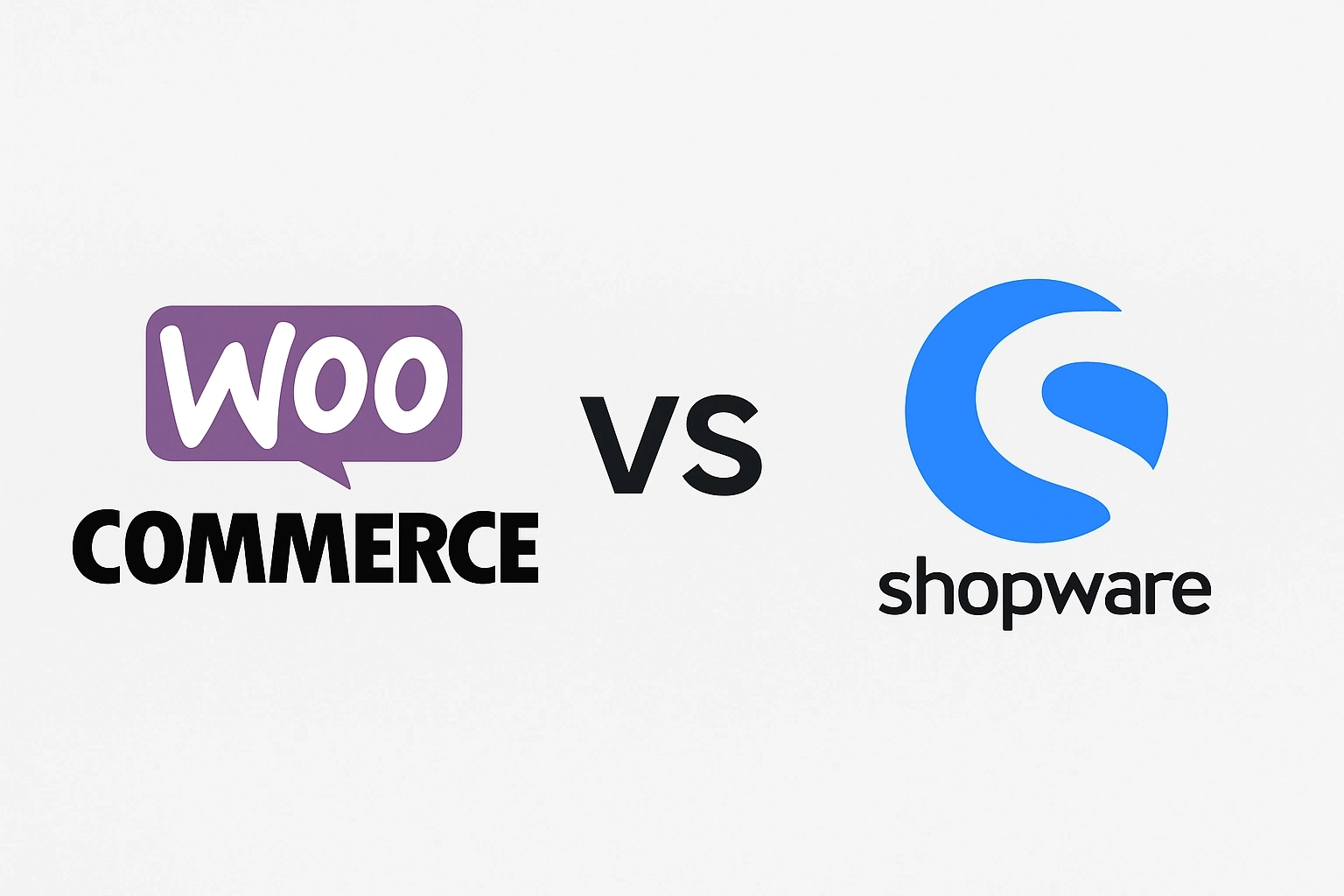Shopware or WooCommerce — which shop system fits my business?
Shopware or WooCommerce? A practical comparison of two leading shop systems — with pros/cons, use cases and a decision guide.
Johannes Wigandt

If you want to launch an online shop today, you’ll quickly face the question:
Which system fits best — Shopware or WooCommerce?
This post provides a solid overview and a hands‑on comparison.
We’ll look at WooCommerce first, then Shopware, and finally compare them directly with a decision guide.
WooCommerce — flexible and great for small to mid‑sized shops
WooCommerce is a WordPress plugin that turns your website into a full shop.
Small businesses and beginners value the easy setup and operation. The large ecosystem offers many themes, plugins and a strong community.
WooCommerce pros:
- Ideal for small to mid‑sized shops
- Fast start — especially if you already use WordPress
- Huge choice of extensions and themes
- Low initial investment
- High adaptability thanks to open architecture
WooCommerce cons:
- Performance can drop with very large catalogues (> 5,000 products)
- Many key extensions (multilingual, invoicing, integrations) are paid
- Maintenance/security/updates require attention due to WordPress and third‑party plugins
- Less suited for complex B2B requirements
Shopware — scalable and future‑oriented for growing shops
Shopware is a full e‑commerce system built for professional online retail.
With a modern API‑first approach it suits small and large businesses. There’s a free Community Edition and commercial editions with extended features; the ecosystem is growing steadily.
Shopware pros:
- Built specifically for e‑commerce
- Modern headless architecture (great with Nuxt.js or Vue.js)
- Flexible Shopping Experiences for marketing and content
- Built‑in multi‑language, multi‑currency and B2B
- Excellent performance with large catalogues
- Editions for different company sizes
- Growing community and professional support
Shopware cons:
- Higher entry costs vs WooCommerce
- More demanding hosting requirements
- Usually needs technical know‑how or developer resources
Direct comparison at a glance
- Target group: WooCommerce fits small to mid‑sized shops and WordPress users; Shopware fits small to large shops and professional retailers.
- Installation: WooCommerce is a WordPress plugin; Shopware is a standalone system with community/commercial editions.
- Costs: WooCommerce has low starting costs but many paid add‑ons; Shopware has higher entry costs but rich built‑in features.
- Performance: WooCommerce struggles with very large catalogues; Shopware performs well at scale.
- Extensibility: WooCommerce depends on third‑party plugins; Shopware offers a growing, professionally supported ecosystem.
- Security & maintenance: WooCommerce depends on WordPress and plugins; Shopware has built‑in mechanisms and vendor support.
- B2B: Basic in WooCommerce (often plugins); strong and integrated in Shopware.
- Scalability: Limited for WooCommerce; very good for Shopware.
- Hosting: Simpler for WooCommerce; higher requirements for Shopware.
When is WooCommerce the right choice?
- You have a small catalogue and extend an existing site
- You’re familiar with WordPress and want to start quickly and cheaply
- Budget is tight and you want the simplest route
Example: A small shop for handcrafted products or a regional supplier with a compact assortment.
When does Shopware pay off?
- Your shop is core to the business model
- You plan a large catalogue, many variants or international markets
- You need built‑in B2B, complex pricing or ERP/PIM integrations
- You care about scalability and long‑term future‑proofing
Example: Mid‑sized companies with a growing assortment or ambitious startups expanding internationally.
Conclusion
There is no absolute “better” — it depends on your requirements, goals and resources.
- WooCommerce works well for small shops with simple setup and fast rollout.
- Shopware is the best choice when you want to grow professionally and scale and are ready to invest in a powerful solution.